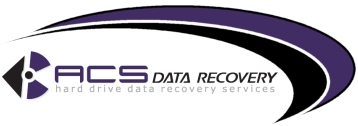
No Evaluation Fees, No Attempt Fees
Safe, secure, professional data recovery
 |
Call
Toll-Free: 1-800-717-8974 No Evaluation Fees, No Attempt Fees Safe, secure, professional data recovery |
|
OST
File Recovery and PST File Recovery Email communication has expanded itself from professionals to normal home users. As a child enters into teenage, he becomes familiar with the power and usefulness of email communication and uses emails to correspond within his circle of friends and relatives. If we quickly look at some of the public email portals like Yahoo, Hotmail, Rediff etc; it can be analyzed that these portals regularly increase email storage limits for its users and as long more space is provided will thus encourage the user to utilize it. Email communication proves more useful in the corporate world where hundreds of emails are exchanged daily between the professionals. They could be meeting notices, memorandums, important business attachments or simple emails of well being. If the importance of email communication has increased, so has increased the importance of data storage and the level of corruptions of email messages. This importance has resulted into duplication of data and information, data archives, and waste of hard drive storage space. Email Storage : As you receive many emails in a day, have you ever wondered where these emails get stored? The answer could be an email server or on the user's computer system. MS Outlook and Outlook Express are the widely used email clients because of their ease of use and user friendly features. While working on MS Outlook, the email files are stored in PST and OST file formats and an exchange server is maintained to handle the incoming and outgoing emails. Now arise the common questions; what is exchange server, .pst files and .ost files and how are they used to store emails? Microsoft Exchange Server: Microsoft Exchange Server is a messaging system which supports transfer of internal and external electronic messages. The application is widely used in organizations where Microsoft infrastructure solutions are used. The exchange server stores data in highly organized relational database with the help of algorithms thus helps in transfer of mails and manages communication between other Exchange servers also. How does Exchange Server work? As the Exchange server stores messages and manages incoming and outgoing process of emails, the working of the messaging server also becomes a crucial point. The process of receiving, sending and managing the messages by Exchange server is as follows: Step 1: The
client connects to the server and sends the message. The simple working of the exchange server makes it easy for us to send and receive messages, thus transferring data electronically. MS Outlook - Personal Storage Files - "The file where MS Exchange server delivers messages" The Personal Storage File (.pst) is the most robust storage container of emails and MS Outlook has the ability to store and deliver messages in the .pst file format, other file types can also be stored inside the PST file. But the PST file can get corrupt due to accidental file deletion, virus attacks or it can get damaged internally causing into data loss. There are number of email recovery and pst recovery software which effectively recovers mails and data from the corrupt pst files. MS Outlook - Offline Storage Files - "The storage file where emails and other information can be stored, which can also be accessed offline." In the corporate arena, Exchange Servers are used to store email messages. The Outlook Offline Storage Folder (.OST) in Microsoft Outlook provides unique synchronization method with an Exchange Server and existing mailbox accounts. The OST file gets stored on a users computer system which constantly gets synchronized with the Exchange mailbox account, which results into duplication of data on exchange server and on the user's system. Access to .ost file requires an Exchange mailbox account, and if the mailbox is damaged, missing or removed, the .ost file will not open. For this you need to convert the .ost file to .pst file on your own or try the exchange ost recovery software. Here I would like to guide you with some simple steps, following which you can convert the damaged .ost file to .pst file successfully in Outlook 2002 or 2003. This is the method which worked for me: 1. Backup the
ost file(s) OST/PST file formats are very complex and are designed around relational database concepts. The messages in these files are organized in hierarchical format using folders to store the messages. If the above mentioned steps do not work in your case of corruption, then it might be due to major corruption which can be effectively repaired by the ost recovery software. There are number of OST file recovery and PST file recovery software to convert and repair your damaged email files. Neha Gupta is a technical writer for Nucleus Data Recovery, provider of the best data recovery software and data recovery services.
|
|